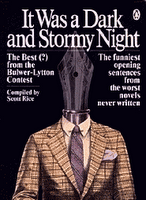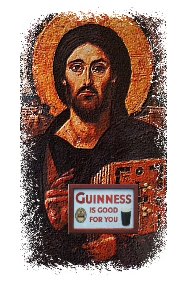Wednesday is my early release day at work, which means I got to listen to All Things Considered on the way home rather than listening to the Red Sox lose another game on their West Coast slide. They were just beginning a story on Grocery Cart TV. Seriously. Wal Mart (of course) and a couple of other supermarket chains are testing grocery carts with T V’s built in so the kids won’t drive you nuts while you shop. One of the people who commented said she was afraid this was another way we were teaching the younger generation that life happens on a screen rather than by actual experience.
V’s built in so the kids won’t drive you nuts while you shop. One of the people who commented said she was afraid this was another way we were teaching the younger generation that life happens on a screen rather than by actual experience.
Before long we are going to be a nation of people like Chance, the gardener in Being There: “I like to watch.”
Quick disclaimer: I have no children of my own. I’ve seen parents in the grocery store try to shop while Jeffy or Mikey or Buffy tries to pull down every box of Pop Tarts or wants an explanation about every can on the vegetable aisle. I see their pain. I can also see the attraction of a screen that will numb them into submission while you grab the Hamburger Helper, though I think the woman who worries about our creating a nation of watchers is probably right. But that’s not my point.
I came home to find a great comment from Suzanne about yesterday’s post on bananas which began, “I hear what you’re saying, Milton. But, at the same time, I’m wistful about times when I could eat without fear.” Put that together with the grocery carts and here’s my point: I’m glad I got to be a kid when I did because I got to grow up without much fear.
- I never knew anyone with a peanut allergy.
- I never wore a bike helmet.
- I hitchhiked in high school (sure, it was in Nairobi, but still –).
- I played with other kids without having to have a play date.
- I climbed trees, dug holes, built forts, and never worried much about being safe.
- I thought skinned knees were part of growing up.
My list is not intended to wax nostalgic or to trivialize the danger that truly exis ts, though I’m guessing George W. didn’t wear a bike helmet either. (I’m just saying . . .) I do think it’s harder to be a kid because the world is more afraid. Fear changes us and causes us to crave what is safe and familiar. We become too easily accustomed to taking the path of least resistance; we learn not to ask too many questions. We end up being watchers rather than experiencers. (I think I made up a new word.)
ts, though I’m guessing George W. didn’t wear a bike helmet either. (I’m just saying . . .) I do think it’s harder to be a kid because the world is more afraid. Fear changes us and causes us to crave what is safe and familiar. We become too easily accustomed to taking the path of least resistance; we learn not to ask too many questions. We end up being watchers rather than experiencers. (I think I made up a new word.)
In a somewhat related tangent, what just popped into my mind is the scene with Butch and Sundance at the top of the cliff looking down at the river. Sundance flinches before he jumps and says he can’t swim. “Can’t swim?” says Butch. “Hell, the fall will kill you.”
I taught English is a wonderful suburban high school that worked hard to support the kids in every way we could. The guidance counselors were amazing. Teachers stayed late so kids could get extra help. We bent over backwards to help them succeed. The one thing we didn’t do was help them learn how to fail and live through it. I had semester after semester when not one of my one hundred and twenty-five students failed. Our grading system was the bike helmet that kept them from feeling the full brunt of the fall, and kept them from learning that they could live through the pain and learn from it. One bad grade wasn’t going to kill them. We should have told them when the stakes were low; I’m guessing they have had to learn the lesson when people were playing for keeps.
The woman who critiqued the TV carts talked about the grocery store as opportunity for conversation and exploration, as a chance to engage and interact with your kid as you shop. Yes, they do get bored before the shopping is over, and they get to learn – or begin to learn – that life isn’t about keeping them comfortable or out of the way.
Spookyrach had a great post this week about starting a new church that made me laugh out loud and want to join right now. “Church leaders,” she said, “will wear robes and sometimes capes,” which reminded me of my second-favorite Guy Clark song, “The Cape,” that is an appropriate way to end my meanderings.
Eight years old with flour sack cape
Tied all around his neck
He climbed up on the garage
Figurin’ what the heck
He screwed his courage up so tight
The whole thing come unwound
He got a runnin’ start and bless his heart
He headed for the groundHe’s one of those who knows that life
Is just a leap of faith
Spread your arms and hold you breath
Always trust your capeAll grown up with a flour sack cape
Tied all around his dream
He’s full of piss and vinegar
He’s bustin’ at the seams
He licked his finger and checked the wind
It’s gonna be do or die
He wasn’t scared of nothin’, boys
He was pretty sure he could flyHe’s one of those who knows that life
Is just a leap of faith
Spread your arms and hold you breath
Always trust your capeOld and grey with a flour sack cape
Tied all around his head
He’s still jumpin’ off the garage
And will be till he’s dead
All these years the people said
He’s actin’ like a kid
He did not know he could not fly
So he didHe’s one of those who knows that life
Is just a leap of faith
Spread your arms and hold you breath
Always trust your cape
Maybe – just maybe – the fall doesn’t kill us.
Peace,
Milton







